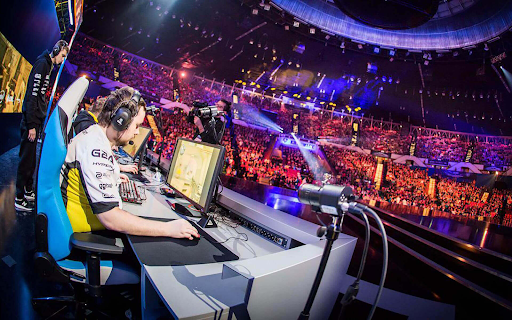
The gaming industry has evolved from its humble beginnings of pixelated sprites and simplistic gameplay into a global powerhouse. Today, it stands as one of the most lucrative and dynamic sectors in the entertainment world. This article explores the ins and outs of the gaming business, from its historical roots to its current trends and future potential.
A Brief History
The history of gaming as a business traces back to the early days of arcades and home consoles in the late 1970s and early 1980s. Companies like Atari, Nintendo, and Sega, as well as emerging online platforms is here on allvideoslots.net, which paved the way for what would become a multibillion-dollar industry. These pioneers capitalized on the fascination with video games, creating hardware and software that captured the hearts and minds of gamers around the world.
The 21st century ushered in a new era of gaming, characterized by the rise of mobile gaming and the proliferation of online multiplayer games. Companies like Apple and Google entered the market with app stores, making it easier than ever for developers to reach a global audience. The advent of smartphones and high-speed internet connections transformed gaming into a ubiquitous form of entertainment, with billions of players worldwide.
The Business of Gaming Today
Diverse Revenue Streams:
Gaming companies no longer rely solely on one-time game sales. Instead, they employ a variety of revenue models, including in-app purchases, microtransactions, subscription services, and advertising. These diverse streams of income allow developers and publishers to monetize their games continuously.
Esports and Competitive Gaming:
Esports has emerged as a significant aspect of the gaming industry. Professional gamers, teams, and leagues now compete for substantial cash prizes and global recognition. Esports events attract millions of viewers and have even made their way into traditional sports stadiums.
Streaming and Content Creation:
Platforms like Twitch, YouTube Gaming, and Facebook Gaming have given rise to a new breed of celebrities: content creators and streamers. These individuals make a living by entertaining and engaging with their audiences while playing games. This ecosystem has opened up sponsorship and advertising opportunities for both creators and game developers.
Virtual Reality (VR) and Augmented Reality (AR):
VR and AR have introduced immersive gaming experiences that blur the line between the virtual and real worlds. Companies like Oculus (owned by Facebook) and Valve have invested heavily in VR, creating new markets for games and technology.
Cross-Platform Play:
Cross-platform play has become increasingly common, allowing gamers on different devices to play together. This trend promotes inclusivity and expands the potential player base for many games.
Challenges in the Gaming Business
While the gaming industry enjoys remarkable success, it faces several challenges:
Monetization Ethics:
Balancing monetization with ethical considerations has been a recurring issue. Some games have faced backlash for aggressive microtransactions or loot boxes, leading to calls for more transparent and consumer-friendly practices.
Market Saturation:
The gaming market is crowded and competitive. Standing out and attracting players in this oversaturated environment is a constant challenge.
Technological Demands:
Developing games with cutting-edge graphics and features requires significant financial and technical resources. Keeping up with evolving technology can be daunting for smaller studios.
The Future of Gaming Business
The gaming industry shows no signs of slowing down. Here are some trends to watch for in the coming years:
Cloud Gaming:
Cloud gaming services, like Google Stadia and Xbox Cloud Gaming, promise to make high-quality gaming accessible to a broader audience. This technology could reshape how games are distributed and played.
Metaverse and Virtual Worlds:
The concept of the metaverse, a shared virtual space where users can interact with each other and digital environments, is gaining traction. Gaming companies, such as Epic Games with Fortnite and Roblox, are exploring metaverse possibilities.
Sustainability and Inclusivity:
There is a growing emphasis on sustainability and inclusivity in gaming. Companies are making efforts to reduce their carbon footprint, improve diversity, and ensure accessibility for all players.
Conclusion
The gaming business has come a long way from its modest beginnings, evolving into a multifaceted industry that transcends boundaries and demographics. With innovative technologies on the horizon and a dedicated global audience, the future of the gaming business promises to be an exhilarating journey filled with new opportunities and challenges. As long as there are gamers with a passion for immersive experiences, the gaming industry will continue to thrive.

